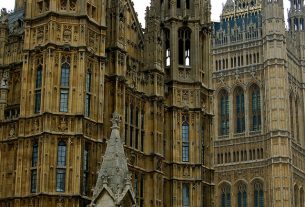Boris Johnson’s government has resumed Brexit talks with the European Union after several rounds of meetings had to be cancelled due to the coronavirus pandemic.
The Scottish government has called for a two year extension to the transition period as the clock ticks ever closer to the official December 31 deadline, when the transition period ends.
Failure to reach a free trade deal before the deadline will see the UK crash out of the EU on World Trade Organisation (WTO) terms. The expected economic damage of no-deal-Brexit has been widely forecast and predicted, but the UK now faces a “double whammy” with a possible no-deal Brexit compounding the damage of the coronavirus to the UK economy.
‘If the EU asks we will say no’
Scotland’s cabinet secretary for Europe, Michael Russell, said the UK government should now “be asking the EU for the maximum two-year extension to the transition period”.
The withdrawal agreement allows for an extension but the prime minister’s spokesperson said last week the government will not ask for one, “and if the EU asks we will say no.”
The spokesperson said: “The government was elected on a manifesto which made clear the transition period would end on 31 December 2020. That is now enshrined in primary legislation and it remains our policy.”
‘We need legislative and economic flexibility to manage Coronavirus pandemic’
An extension would “simply prolong the negotiations, prolong business uncertainty, and delay the moment of control of our borders”, said the spokesperson, adding it “would mean we will have to make further payments into the EU budget.
“It would also keep us bound by EU legislation, at a point when we need legislative and economic flexibility to manage the UK response to the Coronavirus pandemic.”
James Crisp, writing in the Telegraph asks if Johnson is “betting on a tight Brexit deadline to get him the bare bones deal he wants”, despite the risk of “dramatically compounding” the economic damage caused by the coronavirus pandemic?
Talks already have sticking blocks
The UK and EU negotiators are using videoconferencing to conduct the talks that have been disrupted by the pandemic, with the both lead negotiators – the UK’s David Frost and EU’s Michel Barnier – and other officials having to spend time self-isolating because of Covid-19 symptoms.
Among existing sticking blocks is the UK’s alignment to EU regulations post Brexit, fishing quotas and access to British waters, the UK’s commitments to human rights and, the Independent states: “whether the two sides are negotiating one overarching agreement or many”.
“The benefits of co-ordinated European action have never been clearer,” said the Scottish secretary for Europe. “An extended transition will keep the UK as close as possible to the EU and provide an opportunity to re-think the future relationship.”
Brexit and coronavirus ‘double whammy’
The European People’s party – the largest group in the European parliament – last month called for a one-year extension to the transition period.
Christophe Hansen, a Luxembourg MEP and international trade committee member, said: “Under these extraordinary circumstances, I cannot see how the UK government would choose to expose itself to the double whammy of the coronavirus and the exit from the EU single market, which will inevitably add to the disruption, deal or no deal.
“I can only hope that common sense and substance will prevail over ideology. An extension of the transition period is the only responsible thing to do.”




